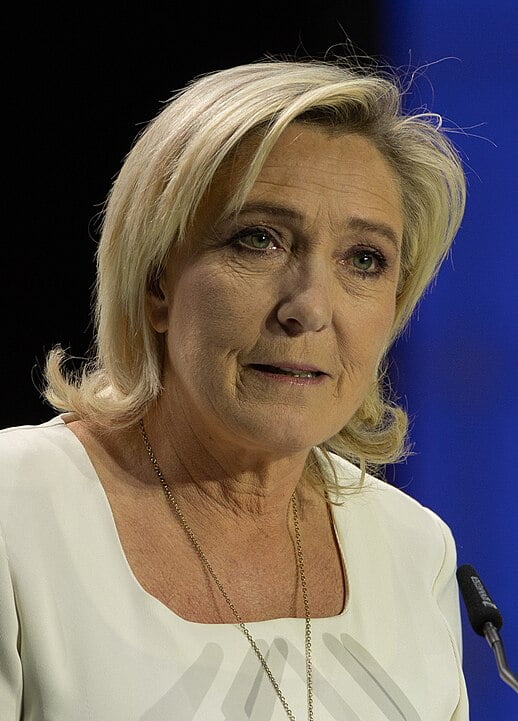In a surprising turn of events, Marine Le Pen’s hard-right National Rally has faced a significant setback in the recent French parliamentary elections. Contrary to prior expectations, a left-wing coalition, the New Popular Front (NPF), has emerged as the leading bloc, according to exit polls.
A Resounding Shift
The New Popular Front, an alliance encompassing a spectrum of left-wing parties from far-left factions to Greens, is projected to have secured the most seats in the parliament, with at least 172 seats, as per Ipsos. This coalition, formed to counterbalance the far-right influence, has surpassed President Macron’s centrist Ensemble bloc, which is estimated to win around 150 seats. Meanwhile, the National Rally, which was anticipated to dominate, appears to have been relegated to third place with at least 132 seats.
Tight Race and Uncertain Outcomes
The exit polls reveal a closely contested race, and the definitive results may not be available until tomorrow. President Emmanuel Macron is currently reviewing the election outcomes and is expected to wait for a complete picture before making any significant decisions, as stated by the French Presidency. The presidency has affirmed that Macron will respect the choice of the French populace as the guarantor of the nation’s institutions.
Political Reactions and Future Implications
Prime Minister Gabriel Attal is expected to address the nation soon, as President Macron refrains from immediate commentary. This evening, Jean-Luc Mélenchon, the leader of France Unbowed (LFI), proclaimed victory for the NPF, suggesting that Attal should resign and that the NPF is prepared to govern.
The New Popular Front is an amalgamation of Socialists, Ecologists, Communists, and France Unbowed, formed in response to Macron’s call for a snap election on June 9. Despite their historical ideological differences, these parties united with a common goal: to prevent the far-right from gaining power.
The New Popular Front’s Agenda
The NPF has pledged to overturn the current government’s pension and immigration reforms, establish a rescue agency for undocumented migrants, and ease visa application processes. Additionally, they propose capping prices on essential goods to tackle the cost of living crisis and increasing the minimum wage. The left-wing camp celebrated jubilantly as projections confirmed their unexpected triumph.
The Road Ahead
Despite this victory, the political future remains uncertain. None of the three major blocs has achieved an outright majority, indicating a likely period of negotiations and coalition-building. The left, buoyed by their strong performance, will undoubtedly seek a significant role in shaping the government’s agenda.
The decline of the National Rally from a leading position in the first round to third place in the second round highlights the effectiveness of the broader political strategy to block the far-right’s ascent. While Jordan Bardella will not become the next French prime minister, the identity of the future leader remains unresolved.
As France stands on the cusp of this new political chapter, the coming days will be crucial in determining the country’s direction. The strong showing by the left signifies a potential shift in policies and priorities, promising a period of dynamic political activity.
Further Reading
